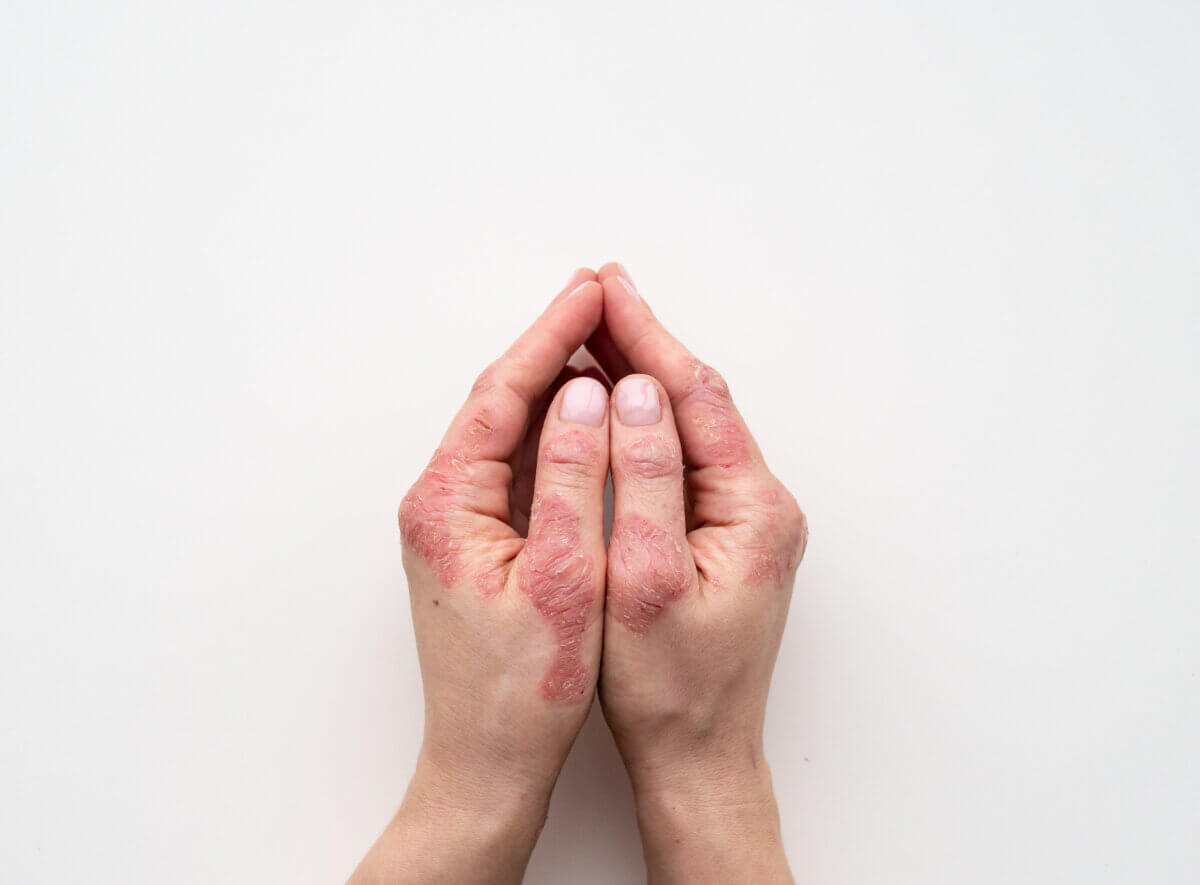PROVIDENCE, R.I. — Psoriasis is a very common skin condition characterized by itchy and scaly patches. In the United States alone, psoriasis affects more than eight million people, according to estimates. Now, however, noteworthy new research suggests a regular regimen of vitamin D through foods or supplements may play an important role in easing the severity of psoriasis cases.
The analysis, one of the largest of its kind to date, examined close to 500 psoriasis cases provided by the National Health and Nutrition Examination Survey (NHANES). Ultimately, researchers from Brown University report discovering a correlation between increasing psoriasis severity and decreasing vitamin D levels measured in blood tests. In other words, the less vitamin D in one’s system, the more severe the skin symptoms get.
“Topical synthetic vitamin D creams are emerging as new therapies for psoriasis, but these usually require a doctor’s prescription,” says Rachel K. Lim, an MD candidate at the Warren Alpert Medical School of Brown University, in a media release. “Our results suggest that a vitamin D-rich diet or oral vitamin D supplementation may also provide some benefit to psoriasis patients.”

Eunyoung Cho, ScD, an associate professor in the Department of Dermatology at the Warren Alpert Medical School of Brown University led this project. Prof. Cho focuses on studying the role of nutrition and environmental factors in skin cancer and inflammatory skin diseases like psoriasis. Vitamin D has long been believed to influence the development of skin diseases by affecting the body’s immune response, as well as other direct effects on specific cells involved in skin repair. Prior research finds vitamin D is also key to strong bone health throughout life.
“With growing public interest in vitamin supplementation, we wanted to further examine the connection between vitamin D levels and psoriasis severity,” Prof. Cho explains. “Few studies have looked for this association in groups of people, especially in large U.S. populations, or examined this relationship through a clinical nutrition lens.”

Study authors identified 491 psoriasis cases from over 40,000 NHANES participants, encompassing 162 cases from 2003-2006 and 329 from 2011-2014. They also extracted data about vitamin D levels, self-reported psoriasis-affected body surface area, and several other factors including age, gender, race, body mass index, and smoking status.
After researchers adjusted for various lifestyle factors, their subsequent analysis revealed that low vitamin D levels and/or vitamin D deficiency were significantly associated with greater psoriasis severity. Notably, patients with the least amount of body surface affected by psoriasis also showed the highest average vitamin D levels – while those with the greatest affected area had the lowest average vitamin D levels.
“Only one previous study, published in 2013, has used NHANES data to analyze the relationship between vitamin D and psoriasis,” Lim concludes. “We were able to add more recent data, which more than tripled the number of psoriasis cases analyzed, making our results more up-to-date and statistically powerful than previously available data.”
While it is very rare for dietary vitamin D to result in toxicity, researchers advise those with psoriasis to consult with their physicians and dermatologists before starting a new supplement regimen.
The team presented their findings at NUTRITION 2023, the annual meeting of the American Society for Nutrition.
You might also be interested in:
- A Dietitian’s Take: How To Get The Most Out Of Your Vitamin D Supplements
- Cannabinoids may soothe eczema, psoriasis, other skin diseases, study finds
- Soak Up The Sun! 19 Awesome Health Benefits From Vitamin D, According To Studies

